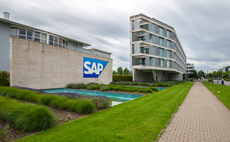Two-thirds of survey respondents have 'no plans' to migrate to S/4HANA
SAP customers are not committing to the company's new enterprise resource management (ERP) platform, S/4HANA, instead continuing with their current systems. A survey by third-party support services...
To continue reading this article...
Join Computing
- Unlimited access to real-time news, analysis and opinion from the technology industry
- Receive important and breaking news in our daily newsletter
- Be the first to hear about our events and awards programmes
- Join live member only interviews with IT leaders at the ‘IT Lounge’; your chance to ask your burning tech questions and have them answered
- Access to the Computing Delta hub providing market intelligence and research
- Receive our members-only newsletter with exclusive opinion pieces from senior IT Leaders






















